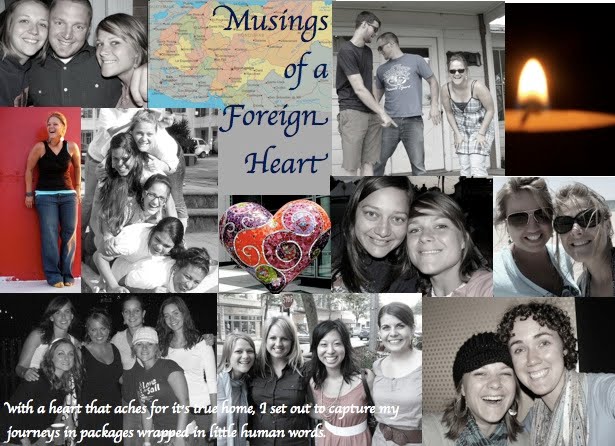In The Huffington Post, Jon Foreman recently wrote an article and then alerted all his twittlers (tweet followers) about his recent journalistic activity. Like the good twittler I am, I checked it out and found "The Dark Horse: Joan of Arc, Elliot Smith, and me" to be sufficiently thought provoking. Not long after, I read Andrée Seu's article in WORLD magazine after a more dedicated search for her writing. I can't find a twitter account for her ... or other ways to be creepily connected, so I have to do the old-fashioned thing and just search the WORLD website. It led me to a gem titled, "Falling from steadfastness" that has secured a space as one of my tabs ever since.
So, how could these two articles possibly intersect? Foreman eases us into a history lesson, via the web mecca of knowledge (Wikipedia) about Joan of Arc's visions as a young girl in an English controlled France. At the age when many young girls are learning to drive a car, Joan of Arc disguised herself as a man, and heroically led the French armies to battle and then victories.
Foreman's conclusion: Joan of Arc was only a hero because there was adversity.
We see the narrative story all around us, playing out in real-time and real consequences. We are all the underdog against this big, nasty opponent called sin. The odds are stacked entirely in its favor and the most obvious and safe and preserving decision would be to surrender before any battle begins.
Foreman is processing what this means for the way we're tempted to see the world through cynicism and bitterness. We're tempted to look at the opponent on the other side of the ring and give up before we begin. But, what better time to display our God-given abilities than in the face of adversity?
Because I am so "this generation," as I'm reading Jon Foreman's article I'm also popping over a few tabs to see what Andrée Seu has to say and totally digging it. She's talking about 2 Peter 3:17, "You, therefore, beloved.... be aware lest you fall from your own steadfastness, being led away by the error of the wicked." Seu calls steadfastness, "a moment-by-moment believing in God" and says that this fall Peter talks about is pretty serious. Then I get down to this little paragraph describing the error of the wicked,
What is the “error”? It is a slightly skewed view of grace that encourages passivity and discourages a striving for greater faith, since all striving—or any muscular “steadfastness”—is suspected of being works righteousness. Never mind that God says to “grow in grace” (2 Peter 3:18).
I read it and moused over to the Jon Foreman tab at the top of my screen and wondered if the articles were working in cahoots. If the error of the wicked is "a slightly skewed view of grace that encouraged passivity and discourages a striving for great faith," then turning back from adversity is not only making a statement about your view of the opponent, but also about your view of grace.
Foreman's article ends pleading with the reader to not approach life with mere cynicism, but to see adversity as an opportunity for heroism. Seu's article ends portraying this kind of heroism in the everyday grind of life... where our view of grace will carry over onto the kind of co-worker, mother, father, daughter, son, and neighbor we are. Seu writes,
There is a “holding on” that must be part of the Christian’s everyday life (Hebrews 3:6,14). “Steadfastness” is not the staunch maintaining of a theological position but something much more personal and difficult: It is fighting for your very life, using every weapon listed in Ephesians 6. These articles of armor were not meant to be admired on a shelf but scuffed up in battle.
And so, at 11 pm, I'm not sure if this makes sense at all, but I just mashed two articles together and came up with this: adversity is an opportunity for heroism as much as defeat. But, to even hope for heroism, one must be with a right view of grace and armored up to go into battle.










No comments:
Post a Comment